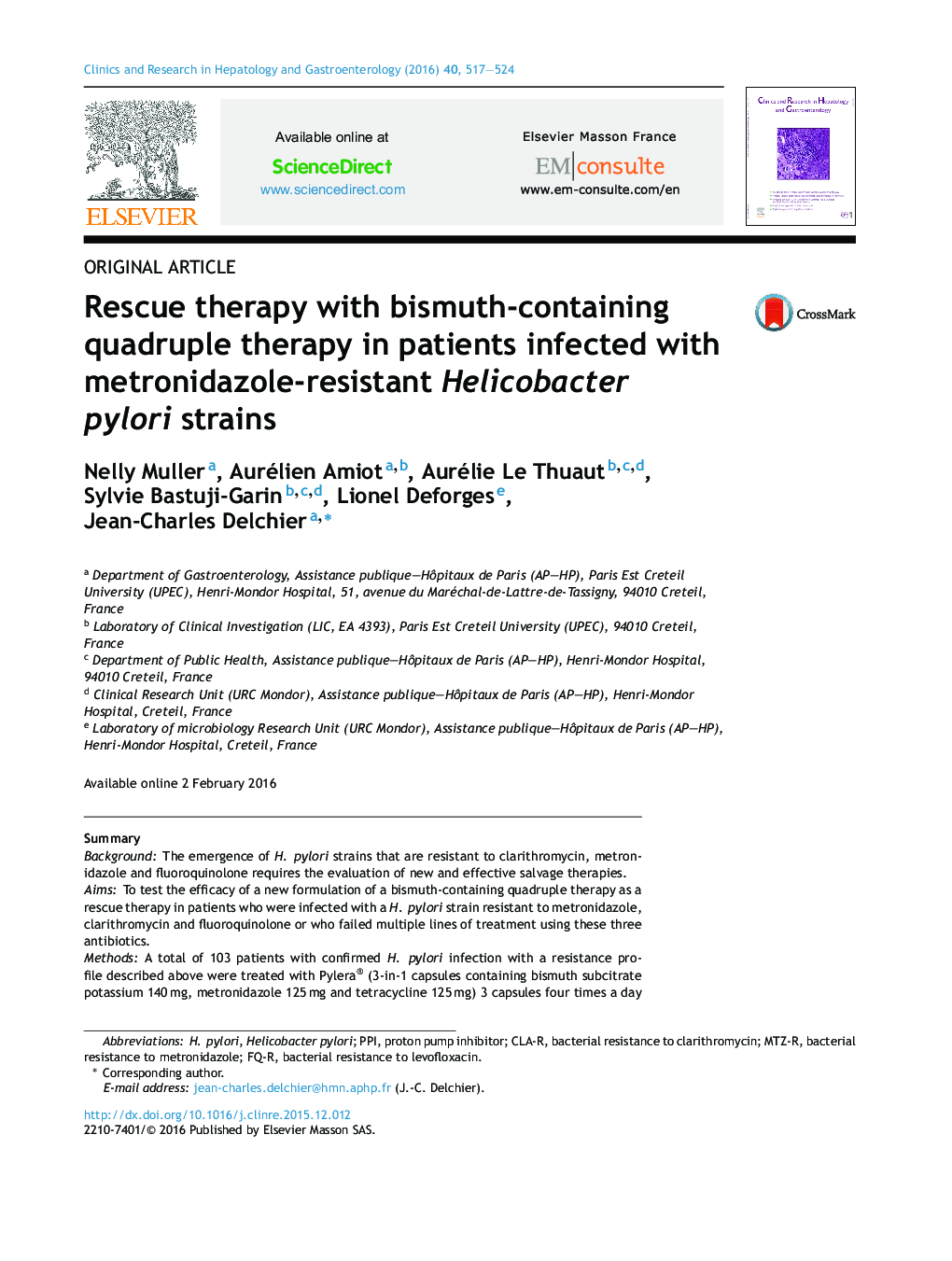| Article ID | Journal | Published Year | Pages | File Type |
|---|---|---|---|---|
| 5657826 | Clinics and Research in Hepatology and Gastroenterology | 2016 | 8 Pages |
SummaryBackgroundThe emergence of H. pylori strains that are resistant to clarithromycin, metronidazole and fluoroquinolone requires the evaluation of new and effective salvage therapies.AimsTo test the efficacy of a new formulation of a bismuth-containing quadruple therapy as a rescue therapy in patients who were infected with a H. pylori strain resistant to metronidazole, clarithromycin and fluoroquinolone or who failed multiple lines of treatment using these three antibiotics.MethodsA total of 103 patients with confirmed H. pylori infection with a resistance profile described above were treated with Pylera® (3-in-1 capsules containing bismuth subcitrate potassium 140 mg, metronidazole 125 mg and tetracycline 125 mg) 3 capsules four times a day plus omeprazole 20 mg two times a day for 10 days in a named patient program. Eradication was confirmed using a urea breath test at least 28 days after the end of treatment. Efficacy and safety were studied.ResultsA total of 103 patients were prospectively included from June 2010 to October 2011. The eradication rate for the intent-to-treat analysis was 83% (CI95%[75-89%]); an 87% eradication rate (CI95%[80-94%]) was found for the per-protocol analysis and 81% (CI95%[80-82%]) for the intent-to-treat analysis in patients with proven resistance to metronidazole. Nine patients discontinued treatment, all due to adverse events. Two serious adverse events (AEs) were reported (memory disorders of unknown significance). Fifty-six (54%) patients reported at least one AE.ConclusionThis bismuth-containing quadruple therapy achieved a remarkable eradication rate as a salvage therapy in patients infected with metronidazole-resistant H. pylori strain, despite the frequent occurrence of mild-to-moderate adverse events.
